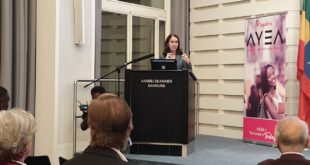Germany is called the land of ideas in academic circles and for good reasons. There are 427 state-accredited institutions of higher education – universities and polytechnics – in Germany. Together, they offer a total of over 18,000 degree programmes. In this piece Chijioke Kizito Onah, a postgraduate student of the University of Frankfurt and DAAD scholarship recipient, discusses strategies foreign applicants can employ to gain admission into German institutions.
For starters, education is mostly free in Germany. In 2014 tuition fees were abolished while in 2017, the state of Baden-Wurttemberg reintroduced tuition fees for non-EU students. Hence the term “mostly free”. But a word of caution is in order regarding the fees. The total fees amounts to 1,500 euros per semester and 3,000 euros per year. Even in the fee-paying scenario, this tuition is considerable when compared to tuition for international students among Germany’s peers.
For completeness, we mention that as of today, University of Freiburg, University of Stuttgart, Ruprecht-Karls-Universität Heidelberg, University of Konstanz, KIT (Karlsruher Institut für Technologie), University of Mannheim, Eberhard Karls Universität Tübingen, and University of Ulm are the ones affected by the reintroduction of fees so far.
READ ALSO Germany most popular non-English speaking country for foreign
There is a further word of caution concerning cost. Tuition paying or not, all universities in Germany charge semester fee. This is usually of the order of a few hundred euros. On the brighter side, this fee gives the student unlimited access to the public transportation system in the city where one is resident. So it’s all gain! It goes without saying that you have to find out exactly how much semester fee your university of choice charges and the limitations therein! As always, terms and conditions apply.
How about application fees? Unlike other western countries, German universities do not charge application fees. A number of universities however demand that international students apply through a central system call Uni-assist. In response to a query on the processing cost, Uni-Assist writes (see here for more) that “The evaluation of educational certificates and the checking of further admission criteria by uni-assist costs 75 euros for first desired course of study in an application semester. Each additional desired course of study in the same semester costs 30 euros.” Be again advised to check the processing route adopted by your choice university.
On language of instruction, be encouraged. Several programs teach their courses fully in English language (beware, you may have to prove that you possess sufficient English language skills to benefit from the classes) be it in arts and humanities, social sciences, business and management, life sciences, natural sciences, or engineering. The sheer number of undergraduate and masters programs taught in English is overwhelming. I have thus permitted myself not to provide a list! However, see here.
If per chance your most desired program is taught in German and you are sufficiently blinded by passion to want to follow it to a logical conclusion, German language proficiency level of B2 or better is required in most cases. To know what B2 is and entails, a beautiful explanation is available here.
At this point, a remark on the admission process is in order. Some programs have open admission—meaning that anyone who meets the minimum requirement is admitted. It is as simple as that! At least in principle. Contrarily, if the admission process is not open, then interviews, entrance exams or other forms of pre-admission evaluations might exist. Do well to enquire from your institution of choice.
READ ALSO Explainer: The university application process for refugees in Germany
So now you have been admitted right? How does one obtain a study visa? Well the process would have been simple and straight forward if not that it is expensive. I am not kidding. Except if you secured some scholarship funding, you would be required to deposit about 8,700 euros upfront before visa could be granted. But don’t panic. The money is still yours. You will be receiving a monthly salary from there when your study commences.
But I just skipped the visa process and focused on the money. For supplements, click here and here for relevant info on visa process and other issues we skipped over so far.
Explore the above links, use your search engine, and visit your desired university website. Google is your friend, any time, any day!
Best wishes.
Chijioke Kizito Onah, Masters Student, Anglophone Literatures, Cultures and Media, and DAAD scholar, is of the Goethe University of Frankfurt, Germany
 THE AFRICAN COURIER. Reporting Africa and its Diaspora! The African Courier is an international magazine published in Germany to report on Africa and the Diaspora African experience. The first issue of the bimonthly magazine appeared on the newsstands on 15 February 1998. The African Courier is a communication forum for European-African political, economic and cultural exchanges, and a voice for Africa in Europe.
THE AFRICAN COURIER. Reporting Africa and its Diaspora! The African Courier is an international magazine published in Germany to report on Africa and the Diaspora African experience. The first issue of the bimonthly magazine appeared on the newsstands on 15 February 1998. The African Courier is a communication forum for European-African political, economic and cultural exchanges, and a voice for Africa in Europe.


















